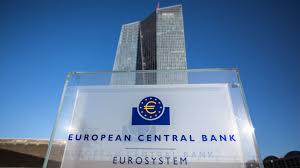As Wall Street prepares for a new era of financial deregulation under a second Donald Trump administration, European banks will have an even harder time catching up to their American counterparts in terms of earnings.
Since the global financial crisis of 2008–2009, lenders in the eurozone and Britain have been hampered by low profitability and weak economies, while American banks have increased in value and taken market share, particularly in investment banking, as European competitors withdrew.
This year, some banks had started to regain the territory they had lost. Up until this week, European stocks were outperforming their American counterparts.
As a result, there were growing expectations that the United States would implement some of the Basel III rules, which would require American banks to maintain more capital and help level the playing field.
Trump’s victory in this week’s presidential election has reversed the trend. While the shares of JPMorgan, Goldman Sachs, and Morgan Stanley all saw a sharp increase, the STOXX Europe 600 Banks index had a weekly decline of more than 1%.
David Materazzi, CEO of Galileo FX, an automated trading platform located in Italy, stated,
“The expectation is simple: deregulation and tax cuts in the U.S. contrast with Europe’s strict oversight and low-interest-rate grind.”
“If U.S. banks get the expected policy support, they could ramp up loan volumes and optimize capital in ways that Europe’s banks just can’t match right now,” Materazzi stated.
While U.S. lenders have more than tripled since early 2010, European banking shares have decreased by 10%.
Laptops 1000Due to higher U.S. fee income and historical non-performing loans that European banks are currently struggling with, the European Central Bank has calculated that the return on equity of eurozone banks varies around 5%, compared to 10% in the United States.
USE THE LOBBY AS LEVERAGE?
There are already indications that politicians in Europe are preparing for a different environment under Trump.
On Thursday, Swiss Finance Minister Karin Keller-Sutter said she had discussed the future for U.S. financial regulation with her British counterpart, Rachel Reeves.
She told reporters that both parties believed it was critical to find a balance between stability and competition. “It was said beforehand that a wave of deregulation was coming in the USA,” she said.
According to one banking executive, a wave of deregulation could provide European banks with some clout to advocate for a relaxation of the continent’s already onerous regulations.
The banking sector in the United States anticipates that Trump will bring in Republican regulators who will relax merger approvals and capital requirements while also weakening the controversial Basel III endgame proposal, which would require large bankers to maintain higher capital.
However, Trump has not yet nominated any important officials or new regulators, so the pace of any deregulation will be set by them, making the future extremely unpredictable.
Running Point Capital Advisors senior investment officer Michael Ashley Schulman believes Trump may also reverse provisions of the 2010 Dodd-Frank financial reform bill, which tightened bank regulations to prevent another economic collapse similar to the one that occurred in 2008.
“Additionally, an uptick in expected corporate M&A because of a less restrictive FTC (Federal Trade Commission) should lead to increased investment banking fees,” he stated.
Additionally, we should anticipate a rise in regional bank mergers.
In contrast, European banks will be competing with one hand tied behind their backs due to their more stringent regulatory scrutiny.
The much anticipated European banking M&A has resumed this year with a possible takeover by UniCredit, Commerzbank, BBVA, and a bid for Sabadell.
However, these deals are subject to political resistance and are not certain.
U.S. banks will be the main winners under Trump, according to Filippo Maria Alloatti, Head of Financials Credit at Federated Hermes.
However, he stated that foreign banks like Barclays, Deutsche Bank, and UBS with significant operations in the United States should also experience “positive impacts.”

















